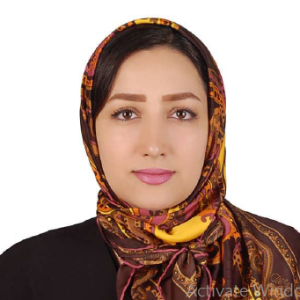Title : Comparison of the heterogeneous catalytic activity of various solid acids in esterification process of methyl acetate production
Abstract:
Active and low-cost heterogeneous catalytic systems still need to be developed in industry. Solid acid catalysts play an important role in chemical reactions. Porous solid acid catalysts are desired according to their increased surface area as well as the catalytically active sites. Many kinds of solid acids have been found; their acidic properties on catalyst surfaces, their catalytic action and the structure of acid sites have been elucidated for a long time. Solid acid catalysts are eco-friendly and can be used as replacements for liquid acids. The use of solid acid catalyst enables a separation of the product by filtration alone; while the separation of liquid catalysts requires tough, cost and time-consuming separation processes. Then by using solid acid catalysts in synthesis process of chemicals, not only high activity, but also reusability is desired in view of the separation of products and the recycling of catalysts. Generally, the prime characteristics of solid acid catalysts can be modified in an economical and eco-friendly way to reduce the overall cost of chemical products on an industrial scale.
Esters are generally produced at industrial scale by using homogeneous catalysts such as H2SO4. However, the process has many limitations, a considerable amount of energy is required for the purification of products and catalyst removal. Furthermore, these catalysts are not reusable. To produce methyl acetate, the ester is produced by Fischer Esterification of methanol and acetic acid in the presence of a strong acid .
Heterogeneous catalysis typically involves solid phase catalysts and liquid or gas phase reactants. It is very important because it enables faster, large-scale production and the selective product formation. The chemical and energy industries rely heavily on heterogeneous catalysis. Traditional acid catalysts have some limitations in industrial processes. Upon completion of the reaction, the remaining acids are generally neutralized using a large amount of alkaline water. The alkali often corrodes the metallic parts of the reactor to produce metallic sludge, which contaminates the ester phase. Consequently, heterogeneous solid catalysts are favored because they are easily separated from the liquid phase and do not exert a direct caustic effect on the metallic equipment. Then they are easy to separate and recycle. Also, there is no acid pre-treatment process needed before introducing the catalyst to the reaction. Beside lower acidity strength of solids in comparison with liquid acids is the most significant disadvantage.
The above challenges are the major driving forces for the development of new catalytic systems. Many different solid heterogeneous catalysts have been recently used for esters production showing promising results with recommendable yields. In this research, we practically have tested porous catalyst supports such as silica gel, alumina, carbon active and poly styrene according to their intense surface area to synthesis solid acids for heterogeneous catalysis of esterification reaction. In the following, we will evaluate the catalytic activity of these supports in the esterification process of acetic acid and methanol.


